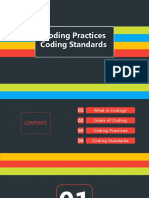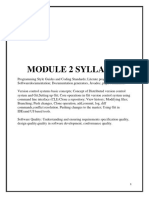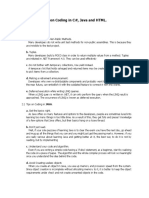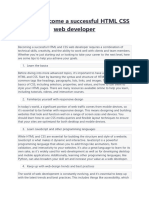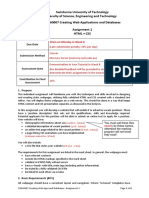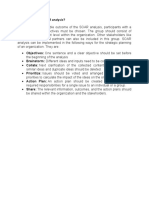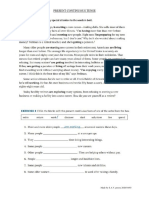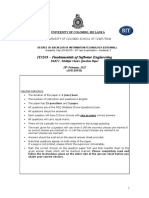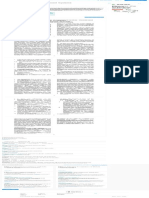0% found this document useful (0 votes)
130 views1 pageHow To Code Your Website
To code a website effectively, one should follow best practices such as using XHTML to meet W3C standards, validating source code, keeping style sheets and scripts in separate files, avoiding excessive graphics and dynamic content, thoroughly testing pages across browsers, and ensuring no broken links. Proper commenting and testing scripts for all scenarios also helps produce a high quality, bug-free website.
Uploaded by
Angana Veenavi PereraCopyright
© © All Rights Reserved
We take content rights seriously. If you suspect this is your content, claim it here.
Available Formats
Download as DOCX, PDF, TXT or read online on Scribd
0% found this document useful (0 votes)
130 views1 pageHow To Code Your Website
To code a website effectively, one should follow best practices such as using XHTML to meet W3C standards, validating source code, keeping style sheets and scripts in separate files, avoiding excessive graphics and dynamic content, thoroughly testing pages across browsers, and ensuring no broken links. Proper commenting and testing scripts for all scenarios also helps produce a high quality, bug-free website.
Uploaded by
Angana Veenavi PereraCopyright
© © All Rights Reserved
We take content rights seriously. If you suspect this is your content, claim it here.
Available Formats
Download as DOCX, PDF, TXT or read online on Scribd
/ 1







